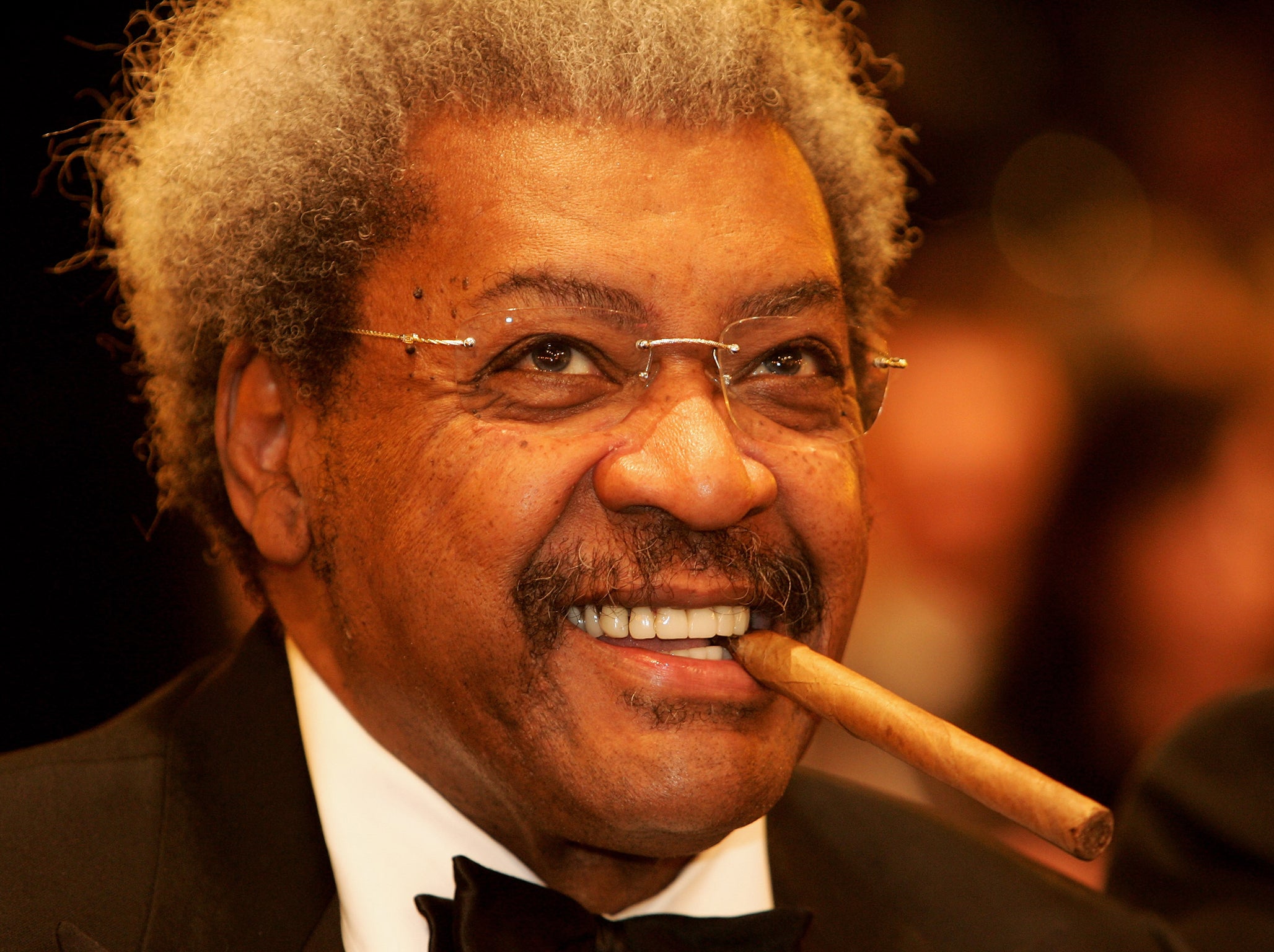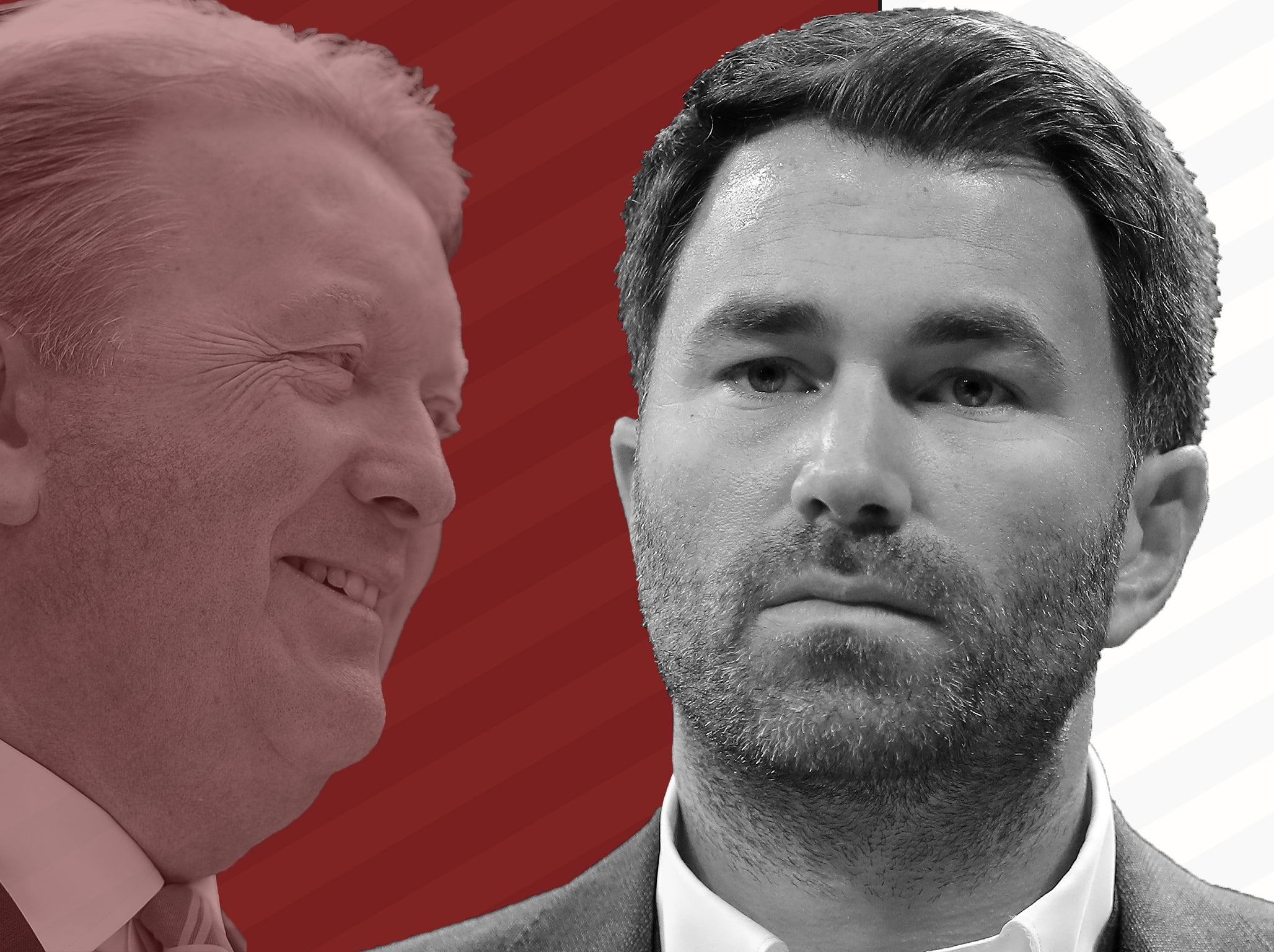The Joshua, Wilder and Fury promotional rumble has all the hallmarks of a classic struggle between old and new
This is far from the first wrangle to find itself entombed in a messy web of glorious nonsense, trickery and covert dealings
At the height of the ugly struggle for boxing dollars, fighters and broadcasters, the American promoters Bob Arum and Don King clashed ringside in Las Vegas one night in the Eighties and a gun fell from King’s pocket in the melee.
Arum turned 87 last Saturday and was ringside at Madison Square Garden, watching his Ukrainian wizard Vasyl Lomachenko retain his lightweight world title. King is in Florida, had one of his last boxers fight for the heavyweight championship earlier this year and at 87 is still promoting.
Last year, as if to celebrate 40-years of their conflict, the pair embraced at a press conference.
In Britain we have an equally colourful history of boxing promoters clashing, long feuds that go to the grave and a web of glorious nonsense, trickery and covert dealings. As a veteran observer of the warring factions, I have collected legal letters from the men running the sport in Britain over the last 35 years and have a pile from five promoters, three managers and a trainer. The great Mickey Duff, arguably Britain’s most knowledgeable fight figure, banned me and sued me successfully over 25 years ago.
In the Sixties and Seventies the mighty sentinels of boxing promotion, Jack Solomons and Harry Levene, cigar-chomping and foul-mouthed rivals, fell out over pennies – a tiny dispute after a weekly lunch – and fought each other until death. The pair controlled boxing, demanded loyalty and never spoke a word to each other ever again. There are an amazing amount of life-long silences in the fight game between men that once broke bread and did business.
Duff and his partners in the fight game had taken over boxing in Britain by the mid-Seventies, operating, according to both the courts and the British Boxing Board of Control, a legal cartel. Duff had all the top fighters, all the top venues and an exclusive deal with the BBC. It was a brilliant “income sharing agreement”, as Duff called it, seemingly untouchable and that all changed when veteran boxing writer Wally Bartleman persuaded Frank Warren to leave the pirate boxing scene and apply for a boxing licence. Warren’s first show was in December 1980.
In the early Eighties, Warren, looking impossibly youthful, had to take on Duff and the cartel, he took on the long fight to smash their financial and regulatory stranglehold on British boxing; it was a bloody, costly war, but Warren altered British boxing when he won the battle to operate without shackles. Warren built his reputation as a litigious soul defending himself and defeating the powerful and influential nexus of Duff and company and their impenetrable cartel.
“Duff did every possible thing he could to keep me from being a success,” Warren said. “I did every possible thing I could to make him lose sleep. As soon as I got him ranting and raving I was happy, and it was easy to get him ranting and raving.” It was a lot of years before Warren and Duff had a civil conversation.
In the late Eighties and Nineties both Barry Hearn and Frank Maloney challenged Warren in a repeat of the old-school skirmishes. Warren was steadfast, surviving an assassin’s bullets, legal wrangles and a savage and costly battle in court with his one-time partner, King.

Maloney and his backers, a new breed of men with no history in the fight business, had 1988 Olympic gold medalist Lennox Lewis to do their deals with. Duff was dismissive of Maloney’s promotional ability and famously claimed: “Maloney has done a Cecil B DeMille in reverse, he’s taken a somebody and made a nobody.” Maloney would have the last laugh several times, including a glamorous transformation from Frank to Kellie a couple of years ago.
Hearn and Warren worked together on shows, but swapped dissident fighters during their escalating conflict. In the Nineties it was a struggle to keep up with defections, alliances, fights, boasts, threats and other lunacy in the struggle for dates, television rights and the endless search for loyalty. It was a truly great time to be on the frontline.
Warren’s reign was total for a long time as he took Frank Bruno, Naseem Hamed, Joe Calzaghe, Ricky Hatton and Amir Khan to world championships between about 1993 and 2008. Warren struck exclusive and lucrative deals with Sky, ITV and Setanta during those years.

In about 2010 the fluid landscape of British boxing changed dramatically when Barry’s son, Eddie, took over Matchroom’s struggling boxing division. Eddie, following one of boxing’s richest and ancient traditions, started to raid the open larders of his rivals; he took Carl Froch from Mick Hennessy and several established stars from Warren. An exclusive deal with Sky secured young Eddie’s power and then in late 2012 he signed Anthony Joshua. Promoters seldom cry when a boxer defects – some cases do end up in court – and perhaps Duff captures the sentiment perfectly: “If you want loyalty, get a dog.”
Now, British boxing is booming, but there is, after a quiet decade or so, a wonderful promotional conflict urgently brewing. Warren has accused Eddie Hearn of spreading “fake news”, regarding a fight between Joshua and either Tyson Fury or Deontay Wilder, and Hearn has stuck with the unassailable mantra: “Joshua is the biggest attraction in British boxing.”
There will be a war zone, a righteous struggle between old and new, the purists, the so-called casual fans, real fights, hyped fights, the men pulling invisible strings and some great fighters and the promoters shaping their futures. Old Duff would relish the coming battle.
Join our commenting forum
Join thought-provoking conversations, follow other Independent readers and see their replies
Comments
Bookmark popover
Removed from bookmarks